I wrote this article in Japanese and translated it into English using ChatGPT. I also used ChatGPT to create the English article title. I did my best to correct any translation mistakes, but please let me know if you find any errors. By the way, I did not use ChatGPT when writing the Japanese article. The entire article was written from scratch by me, Saikawa Goto.
Introduction
Movies and books covered in this article

I will write an article about this movie/book
What I want to convey in this article
A shocking work that makes us realistically realize that “it is very difficult to doubt what is ‘natural.'”



The situation may be unrealistic, but it presents questions that relate to our daily lives.
Three takeaways from this article
- If there is no point of comparison, we cannot even realize that we are “unfortunate.”
- No matter how “abnormal” it may be, it is scary to leave an environment where it feels “normal.”
- We are confronted with questions that are difficult to realize in today’s world where we can easily meet people who share the same values.



Some people may see themselves in the boy who feels scared of the “normal world.”
Self-introduction article


Please refer to the self-introduction article above to learn about the person writing this article. Be sure to check out the Kindle book linked below as well.


Published Kindle books(Free on Kindle Unlimited)
“The genius Einstein: An easy-to-understand book about interesting science advances that is not too simple based on his life and discoveries: Theory of Relativity, Cosmology and Quantum Theory”
“Why is “lack of imagination” called “communication skills”?: Japanese-specific”negative” communication”
The quotes used in this article are based on notes taken at the movie theater from movies in Japanese and are not direct quotes from the foreign language original movies, even if they exist.
This Shocking “True Story” Gives Us an Opportunity to Think about What We May be Trapped by


This movie is a work of fiction, but it is based on a real event. The actual event and the movie differ significantly, but it can be said that they share a common theme at the core of the movie.


However, in this article, I will not delve into the event that inspired the movie. That’s because I believe that it is not a work that should be viewed simply as “this terrifying event actually happened.”
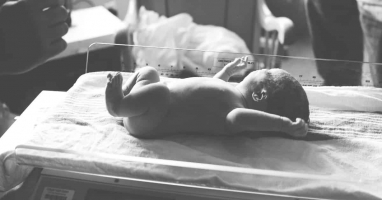




Rather than the “tragedy of the incident,” it’s more suggestive that “we might also be in this situation without even realizing it.”
We don’t usually think about what kind of “ROOM” we’re “locked up in.”
In the case of this movie, the point where it would normally be the “climax” is actually the starting line of the story. And from there, we gradually come to understand that the conflicts the boy faces are related to ourselves.
If you don’t notice the problem or question, you can’t move forward. I think this movie is a work that makes you aware of the “possibility that you are unaware of something.”


First, a Summary of the Contents
Joy and her son Jack have been living in a “ROOM” for a long time. The “ROOM” is surrounded by walls on all four sides, with only a skylight for a window. The entrance door is equipped with a lock that can only be opened by entering a passcode.
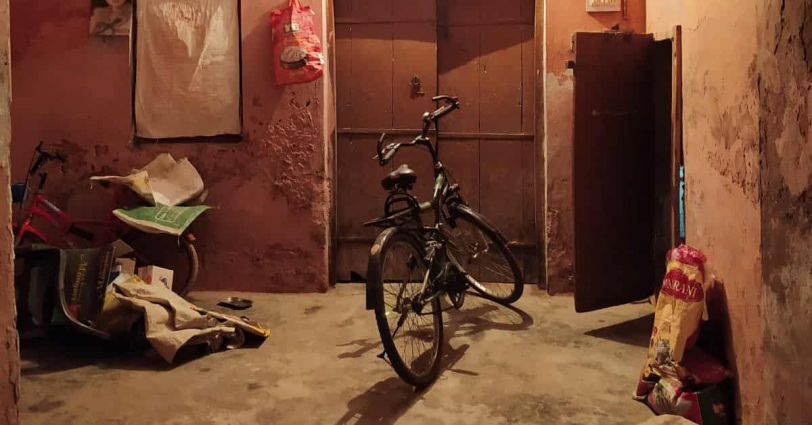

They can’t go outside.


While taking a bath, the two wash their clothes together, exercise in the small “ROOM,” and fear the appearance of “Old Nick” who comes occasionally. They manage to live by receiving “Sunday Treats” from “Old Nick.”
Jack has lived comfortably enough in this “ROOM.” He greets his “Friend” every morning, helps with cooking, and plays with the remote control car that “Old Nick” bought him. Although he had some complaints like no candles on his birthday cake or not being allowed to come out of the closet on “Old Nick’s” days, living here was “normal” for Jack.
Because he didn’t know anything else.


However, Joy, who is his mother, believes that they must escape from this “ROOM” as soon as possible. One trigger that made her feel this way was when the electricity in the “ROOM” was turned off as punishment. She can’t endure this kind of life anymore. Another reason is that Jack has turned 5 years old, and she believes that he will understand if she tells him.
Joy confides in Jack.
“When Mom was 17 years old, I was kidnapped.
This is a barn, and we’ve been confined here ever since.”


Jack couldn’t understand what his mother was saying. She had told him that everything in the world on the other side of the TV was fake. She had said that outer space was outside the wall, and that he would die if he went outside. He couldn’t even imagine leaving “ROOM.”




But Joy desperately pleaded with Jack to “help her.” Jack tried his best to understand for his mother’s sake. Then, they executed the plan that Joy had come up with, and they successfully escaped from “ROOM.”
It was a moment of triumph for Joy, but for Jack, it was only the beginning of terror.


What Kind of “ROOM” are You Living in?
In the movie, a very unique situation is created using a setting that is highly unusual and impossible in daily life, to show how a boy is terrified of the “ordinary world”. It is unlikely that anyone will experience the same thing as Jack in real life.


However, one could argue that everyone experiences sensations similar to Jack’s on a broader scale.



What’s amazing about this movie is that despite there being no direct commonality between Jack and the audience, we can relate to Jack’s struggles as our own.
The element of “kidnapping,” which would normally be the main theme, is completely sidelined.
The name of the “ROOM” we are trapped in is “bias”. I think many people are ruled by various biases, and they see the same situation in different ways.
For example, although it has faded considerably now, in the past, it was quite common to think, “Is there something wrong with unmarried people?” (Such a trend has persisted in Japan for a long time) Living in such a society would make us think, “Am I a failure for not being able to get married?” It would be okay to discard such biases, but I think it’s not easy to do so.


In this day and age, some people may feel like “I’m disliked because I didn’t get an immediate response on LINE” or ” It’s no good because I’m not getting any ‘Likes!'”. This is also just a “bias”.
In the beginning, the audience watching the film may have a hard time empathizing with Jack’s struggles. This is because most of the things that Jack is afraid of are things that we take for granted in our daily lives. Jack is frightened of various things that make our lives comfortable, convenient, and safe, so it may be difficult to sympathize with him.




But gradually, Jack’s conflict should become something relatable to ourselves.
For example, have you ever listened to someone’s troubles and thought, “Why are they even worried about that?” That’s exactly the same kind of gaze that Joy and we direct towards Jack. We can’t fully understand Jack’s fear. This is because even if we’re looking at the exact same thing, it appears completely different to each of us.


The same thing is happening when we feel “Why are they bothered by just that?” Even if we see the same thing, we see it completely differently. Because it appears completely differently, it would be a mistake to judge other people’s problems based on what we see. And that is so commonplace, such situations are common everywhere in this world. That is why I believe it is something that everyone should be aware of in life.



I think it’s difficult to communicate with people who don’t have this kind of awareness, even if they talk about it.
Really, there are people who don’t seem to have this kind of thinking, aren’t there?
However, in modern times, it has become increasingly difficult to recognize this. This is mainly because, thanks to social media, people who are in the same “ROOM” are more likely to interact with each other.
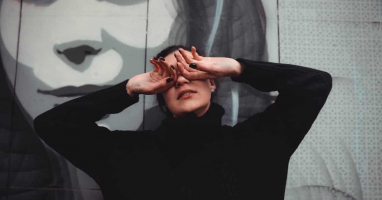

Until now, due to the “physical distance constraint,” there was no way to interact with people who were not physically nearby. I think the possibility of having the same senses and values as someone who is only physically close is very low. So everyone built relationships with “people who are not necessarily a perfect match,” and in that process, there would have been opportunities to realize that “what they see is completely different than me.”
However, in today’s world, it is also possible to create relationships online, giving up relationships with people who are physically close. There would be countless services that match friends and lovers based on hobbies and preferences, and it is not uncommon for “time spent on hobbies” and “time to meet people with similar hobbies” to be parallel, as in online games.


And in such a society, it is easy to become possible to feel that “people around me have the same senses as me,” and there should be few opportunities to realize that “they have a completely different perspective than me.”


In this day and age, I feel that the movie “Room” has great value. This is because it makes us realize the feeling of “you and I see things very differently” that is hard to feel in our daily lives through a very unique story.



I can’t help but wonder what would happen if I were in the same situation.
Both Joy and Jack, it must be tough.


“room” for Joy and “ROOM” for Jack
Now let’s talk specifically about the content of the movie. The most impressive thing about it is how it vividly shows that Joy and Jack, who spent the same 5 years together, live in completely different worlds.


For Joy, “room” is nothing but a “constraint,” of course. Having been kidnapped at the age of 17 and imprisoned for seven years, it can only be the worst environment for her. However, she can feel that way because she remembers the life she had taken for granted for 17 years, and she can compare that to the cruelty of this “room.”


On the other hand, “ROOM” is the “norm” for Jack. He has no way to compare it to any other life because he knows nothing beyond this “ROOM,” and he believes that “TV world is on the “planet of TV.'” Furthermore, Joy has to instill in Jack the idea that he does not want to go outside and not stimulate the kidnapper. Therefore, she taught him that “there is a scary space where nothing exists beyond the door or wall.” Jack naturally believes what his mother says. No external information except for TV comes in, and he is told that it has nothing to do with the world they are living in, so there is no doubt about it.


No matter what kind of life it is, if there is no point of comparison, we can’t feel if it’s good or bad, right?



In a way, that might be the happiest thing to say.
The difference in how Joy and Jack perceive their “world” is portrayed from the beginning of the movie, but it becomes even more evident after their escape.


We, audiences with a common sense, would generally follow the story from the perspective of Joy, the mother. It is simply a joyful thing that they could finally escape after enduring 7 years of imprisonment, and start a new life safely with their family.
However, the situation is completely different for Jack. He has came out “beyond the wall” which he continued to believe was “a terrifying world with nothing”. Even now, I think superstitions like “whistling at night brings out snakes,” “hide your thumb when a hearse passes by,” and “it is bad luck when a black cat crosses your path” survive (in the West, it is something like “itchy palms bring in money” or “seeing a yellow butterfly in the spring brings good luck”), but you might say that it is ominous, as if it were inflated to its maximum. It might be said that it is an ominous feeling magnified to an extreme level. It is difficult to find something similar in our daily life to compare with such an impact.
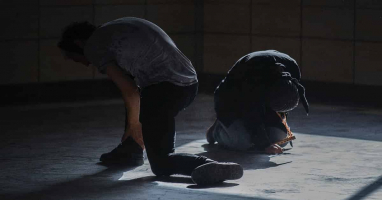

Jack was taught that TV is a fake world, so when he escaped from “ROOM”, the outside world felt too much like the world of TV and he became even more confused. He thought there were only two of them in the world, but suddenly there were many people talking to him. Even the food that he thought was from the world of TV in front of him is too scary to eat.




In this way, Jack is struck by various negative effects due to the fact that the standard of “normal” was his life in the “ROOM”.
Furthermore, practical issues such as “not being able to be with Mom very often” also come to light. If he is in a situation where “he was always with Mom in the ‘ROOM’, but not necessarily after leaving the ‘ROOM'”, it’s natural to feel that “it was better in the ‘ROOM’ where Mom was always with me”.


The theme depicted in this work is truly magnificent, isn’t it?



I also think it’s amazing how it’s portrayed with the reality of “based on a true story,” rather than in SF.
I like that bed. Of the “ROOM”
“How long will we stay here?”
“We will live here forever.”


Despite Joy being immersed in the joy of having escaped, Jack becomes increasingly silent. We are not usually exposed to such a drastic change in values, so we may not be able to fully understand the conflict Jack is feeling. However, by objectively viewing Jack’s conflict, we can realize how much we take things for granted and don’t question various things in our daily lives.




Joy’s Conflict Despite having Regained Happiness
Now, it may be difficult to fully understand Jack’s conflict, but it can be said that Joy’s feelings are easier to understand. Because Joy has overcome various difficulties such as abduction, confinement, and escape, it should be imaginable that she is living a much more peaceful and brighter life than before, although she is troubled by Jack’s condition.


However, this is not so easy in practice, although I do not know if this point is also based on a true story.
It’s true that memories of “having had a difficult experience in the past” can eat away at a person in some way, not just limited to kidnappings.



It’s really tough because they can’t get back the lost time and they can’t return to the way they were before their mind became distorted.
After escaping from the nightmare-like confinement room, Joy initially feels a sense of relief and happiness, but gradually loses her calmness. While the exact reason is not depicted, it is likely that the natural questioning and anger of “why do I have to go through something like this” has resurfaced.


When trapped in the “room,” just thinking “why am I in this situation” will only lead to feeling down without changing anything. So I guess she would decide to turn all their thoughts to how they would happily survive with Jack. However, once their safety was secured and she no longer had to pretend to be fine, she might have been once again trapped in the thought of “why was I in this situation.”
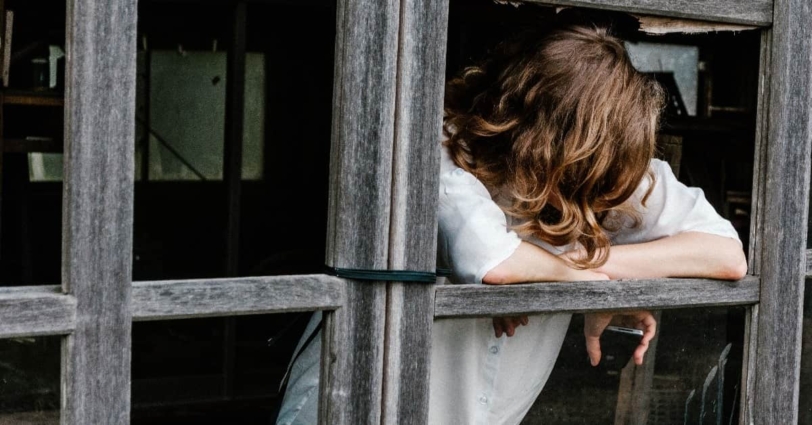

As a result, she began to lash out at those around her.


I can see you had fun without me!
I tried to help that guy’s dog because you mom said to be nice to people!
It’s not possible to pretend that the seven years weren’t the worst time. So at least, she should want to be able to think, “I was lucky to have only made it home alive. However, thoughts that block that idea come to mind. And in the end, she ends up behaving like taking it out on someone else.
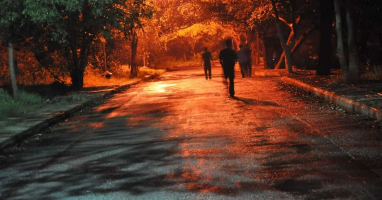

Humans are like creatures that end up enhancing their memories the more they try to forget them.



In the end, we become trapped by our past memories.
The desire to quickly regain the wasted seven years only causes her to become anxious.
For example, Joy tries to force Jack, who shows no interest in the toys placed in front of him, by saying,
This is something normal kids will love. Touch them a little. (She holds a Lego block and) Put them together like this. Do it.




I understand her feelings. It is a parental action driven by the desire for him to grow up as a normal child. However, Jack does not understand it. To Jack, who missed “ROOM,” the toys in front of him didn’t seem appealing, and the fact that his mom, who was so sweet in “ROOM,” was angry for reasons he didn’t quite understand must also have been terrifying. Ultimately, it means that Joy’s “bias” of what “normal” should be has become a new “ROOM” for Jack, which is not comfortable for him at all.


Not only Jack, for whom existence of the “ROOM” was the norm, but Joy is also tormented by conflicts like this. Jack’s struggle teaches us how difficult it is to escape from “preconceptions,” while Joy’s struggle gives the impression of teaching us about the “complexity of reality.”
Despite depicting a very unique setting, I felt that this was a truly remarkable story that evokes a very familiar feeling.


Conclusion
I believe that Joy’s attempt and success in escaping should be seen as a “100% correct” solution. However, the fact remains that Jack was thrown into a great deal of conflict and has lost his former cheerfulness.
But was that the best way for him?


It’s difficult to answer that question with a resounding “YES.” Is there really no “correct” solution that would make everyone, including Jack, happy?


Published Kindle books(Free on Kindle Unlimited)
“The genius Einstein: An easy-to-understand book about interesting science advances that is not too simple based on his life and discoveries: Theory of Relativity, Cosmology and Quantum Theory”
“Why is “lack of imagination” called “communication skills”?: Japanese-specific”negative” communication”







コメント